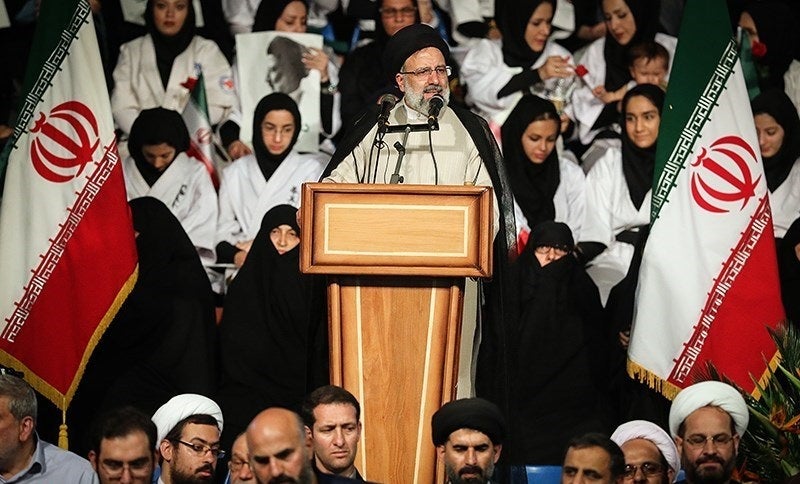Israeli Officials Imply Offensive Action May be Necessary Following Selection of New Iranian President
On Saturday, Ebrahim Raisi was declared to be the winner of Iran’s elections. The appointment of the hard-liner cleric was followed by immediate commentary from high-ranking Israeli officials including an official statement delivered by Israel Ministry of Foreign Affairs Spokesperson Lior Haiat who criticized the integrity of the elections, the record of the newly chosen leader and doubled down on the threat of Iran’s weapons programs. In the statement Lior Haiat said:
“After the Supreme Leader effectively dictated to the Iranian public who they could choose, less than 50% of Iranian citizens eligible to vote have elected its most extremist president to date. The butcher of Tehran, Ebrahim Raisi, has been rightly denounced by the international community for his direct role in the extrajudicial executions of over 30,000 people. He is designated by the U.S. Treasury for these heinous crimes. An extremist figure, committed to Iran’s rapidly advancing military nuclear program, his election makes clear Iran’s true malign intentions, and should prompt grave concern among the international community. More than ever, Iran’s nuclear program must be halted immediately, rolled back entirely and stopped indefinitely. Iran’s ballistic missile program must be dismantled and its global terror campaign vigorously countered by a broad international coalition.”
Israeli media also quoted an unnamed high official as stating that “there will be no choice [now] but to go back and prepare attack plans for Iran’s nuclear program. This will require budgets and the reallocation of resources” while Israeli Defense Minister Benny Gantz declared that “all options are on the table” (in regards to Iran’s nuclear weapons program).
There is significant concern among Israeli officials that the new leader, officially the second most important man in Iran, will adopt a hard stance on nuclear and foreign policy issues. While the current US administration has moved to revive the JCPOA nuclear agreement with Iran and has reportedly made some progress, the change in leadership threatens to undermine American efforts.
A US State Department Spokesperson said that informal talks would continue even after Raisi takes power although the leader had told the press that he would not meet President Biden if given the opportunity. Nevertheless, given Supreme Leader Ali Khamenei approval for the negotiations, it is unlikely these public statements make much of a difference for the ongoing talks.

